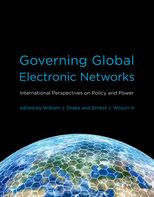Privacy has emerged as a key regulatory issue in the wake of the information and communications revolution. New technologies have brought new problems; they have made it more difficult for individuals to maintain their privacy (or for other actors to protect it on their behalf), while also giving rise to complex issues of global regulation. The right to privacy, however it is defined, rests on the individual’s ability to control information about himself or herself, and how that information is disseminated and used. Advances in information and communications technology have had profound consequences for individuals’ ability to exercise that right. New technologies, including, but not limited to, the World Wide Web (WWW) make it far easier for third parties to gather information about behavior, and potentially to link this information to specific individuals. Data mining and information sifting techniques, together with access to computing power, make it easier to analyze that information and make it useful. These new technologies make it far more difficult for individuals who value their privacy to maintain it. The sheer volume of information, and of uses to which information can be put, also make it more difficult for specialized agencies (such as data protection commissioners) to protect individual privacy.
Henry Farrell “Privacy in the Digital Age: States, Private Actors and Hybrid Arrangements in Governing Global Electronic Networks: International Perspectives on Power and Policy, eds. William Drake and Ernest Wilson (The MIT Press: 2008).
